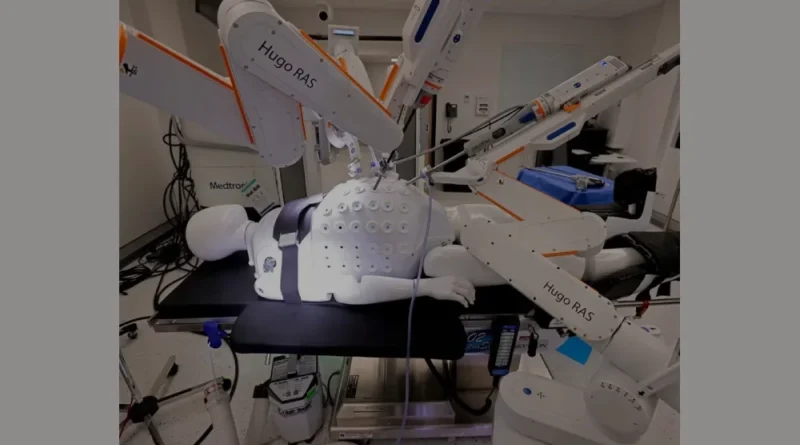Elon Musk: Robots Will Soon Be Better Surgeons Than Humans
In the next five years, robots are predicted by Elon Musk to extend their surgical abilities beyond what human surgeons can achieve at their best. Musk’s projection about robots’ abilities above human surgeons matches his wider worldview that incorporates robotics into various sectors for higher precision and improved efficiency.
The essential piece of Tesla’s humanoid robot development stands as Optimus. Tesla projects that Optimus will start working at its factories during 2025, with commercial availability anticipated for 2026. The Tesla CEO forecasts that humanoid robots will outnumber humans during the year 2040, while each model will come at a price range between $20,000 and $25,000.
The medical surgery field has already witnessed major progress through robotic system development. Scientists at Johns Hopkins University demonstrated robots can achieve surgeon-level precision during operations after they received training through the analysis of surgical video data from experienced medical practitioners. The new finding paves the way for robots to become more self-operable in surgical procedures, potentially eliminating the necessity of human hands throughout the process.
The implementation of surgical robots faces various hurdles during their path toward widespread acceptance. The implementation of surgical robots relies on additional hurdles like technical limitations and strict safety measures along with the high installation costs, according to expert opinions. Human operators maintain control of the da Vinci Surgical System even though it acts as a robotic-assistance pioneer in surgery. Robotic surgery will reach full autonomy only when artificial intelligence along with machine learning advances sufficiently.
Musk’s aggressive scheduling has received doubt from various experts in industry and science. Previous forecasts, including autonomous car deployment, received prolonged periods of setbacks, according to critics. The deployment of humanoid robots within operating rooms entails a longer timeframe than first predicted.
The potential advantages from robotic surgery work to overcome its installation barriers. Robotic systems carry out operations at such precise levels that they eliminate errors that humans make, and they avoid mistakes caused by fatigue while maintaining task consistency. Robot systems have the potential to support areas where limited skilled surgeons exist, which increases opportunities for high-quality medical treatment.
Although Elon Musk has predicted robot surgeons to outperform humans within five years, it seems likely that ongoing robotic and AI developments will result in robots taking a central role in operating rooms. The path toward this technological future demands solving multiple issues regarding technical execution and ethical concerns along with handling logistical requirements, though its transformative power in healthcare innovation cannot be denied.
Disclaimer
The information presented in this blog is derived from publicly available sources for general use, including any cited references. While we strive to mention credible sources whenever possible, Web Techneeq – Website Development Agency in Mumbai does not guarantee the accuracy of the information provided in any way. This article is intended solely for general informational purposes. It should be understood that it does not constitute legal advice and does not aim to serve as such. If any individual(s) make decisions based on the information in this article without verifying the facts, we explicitly reject any liability that may arise as a result. We recommend that readers seek separate guidance regarding any specific information provided here.

